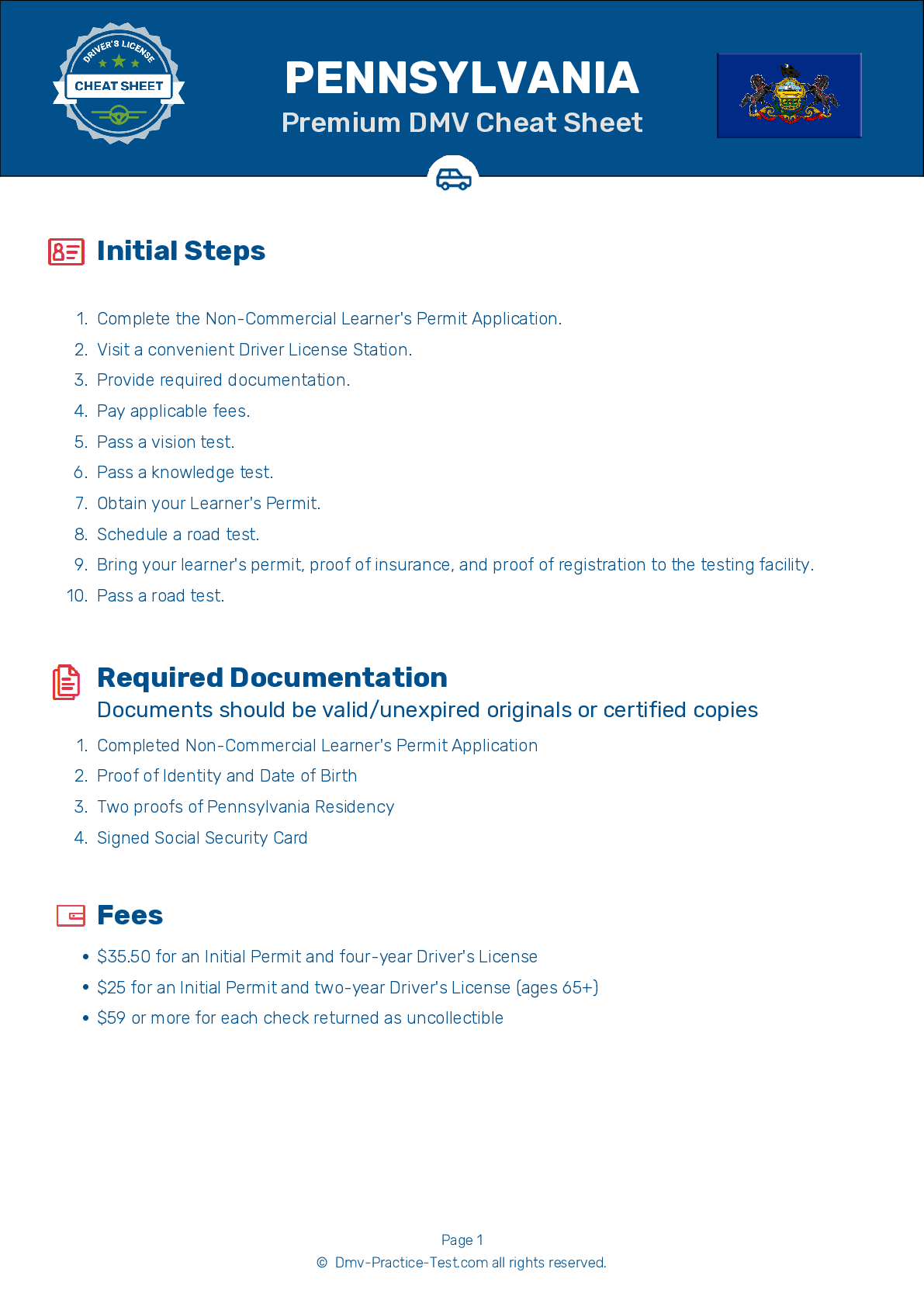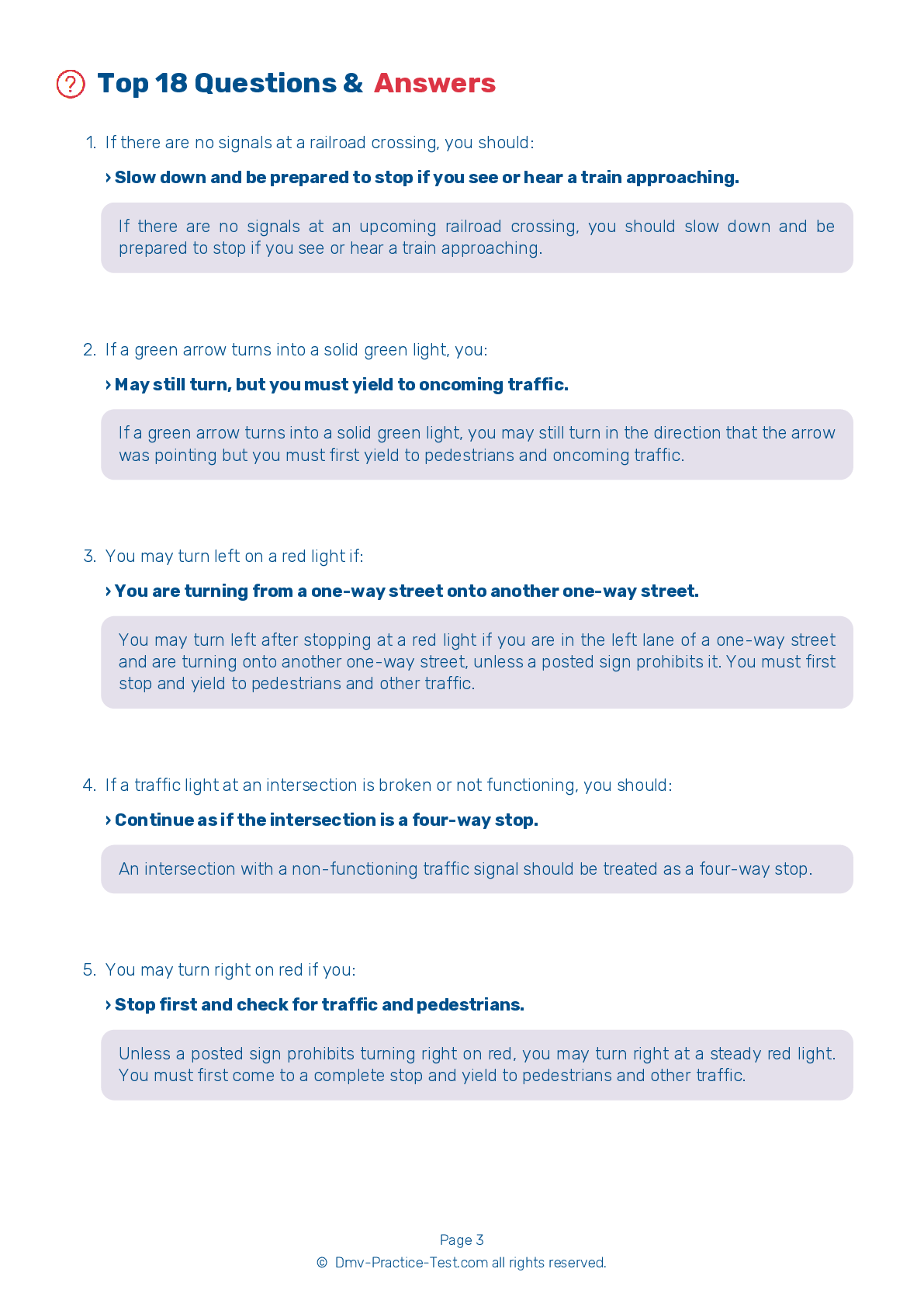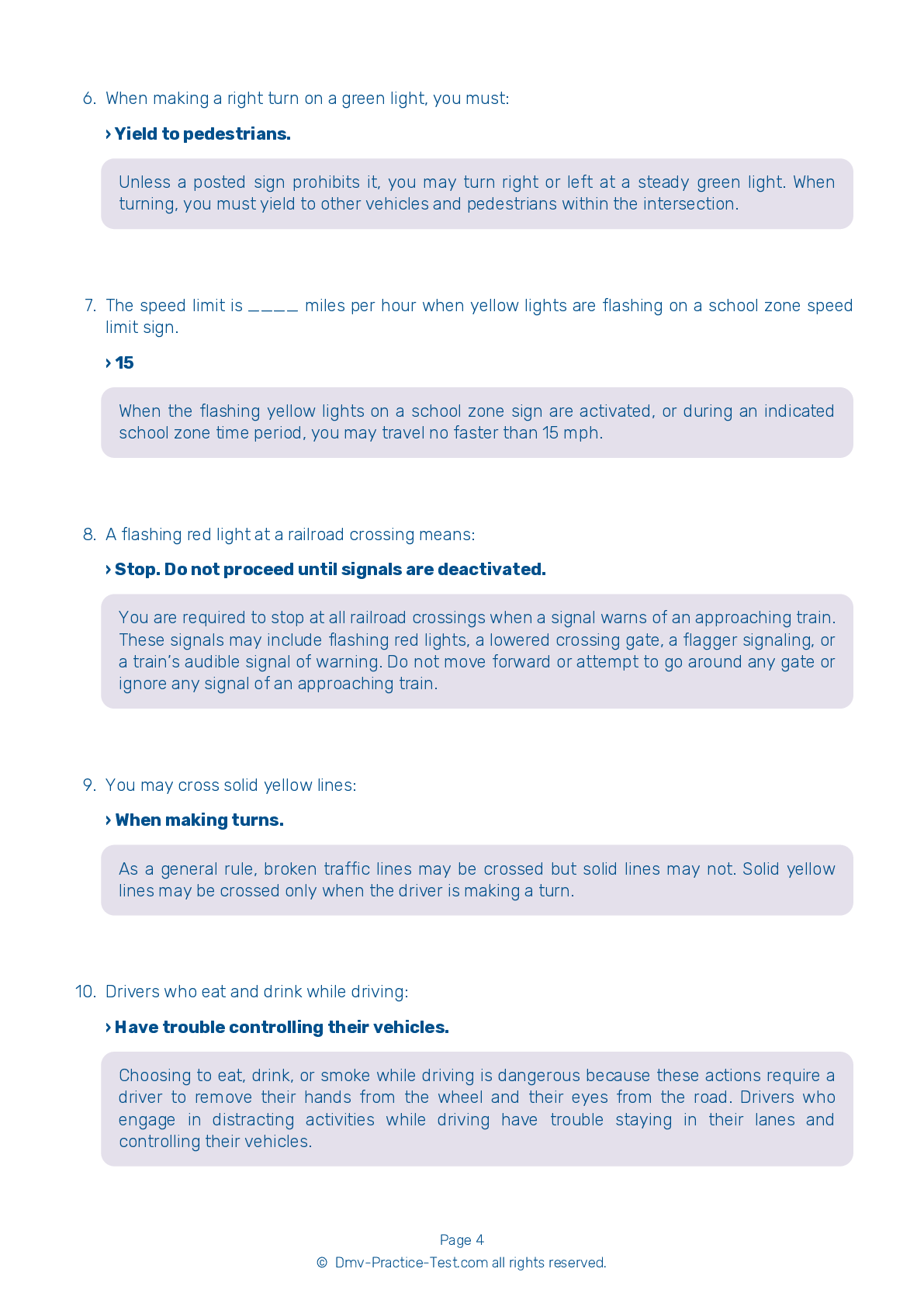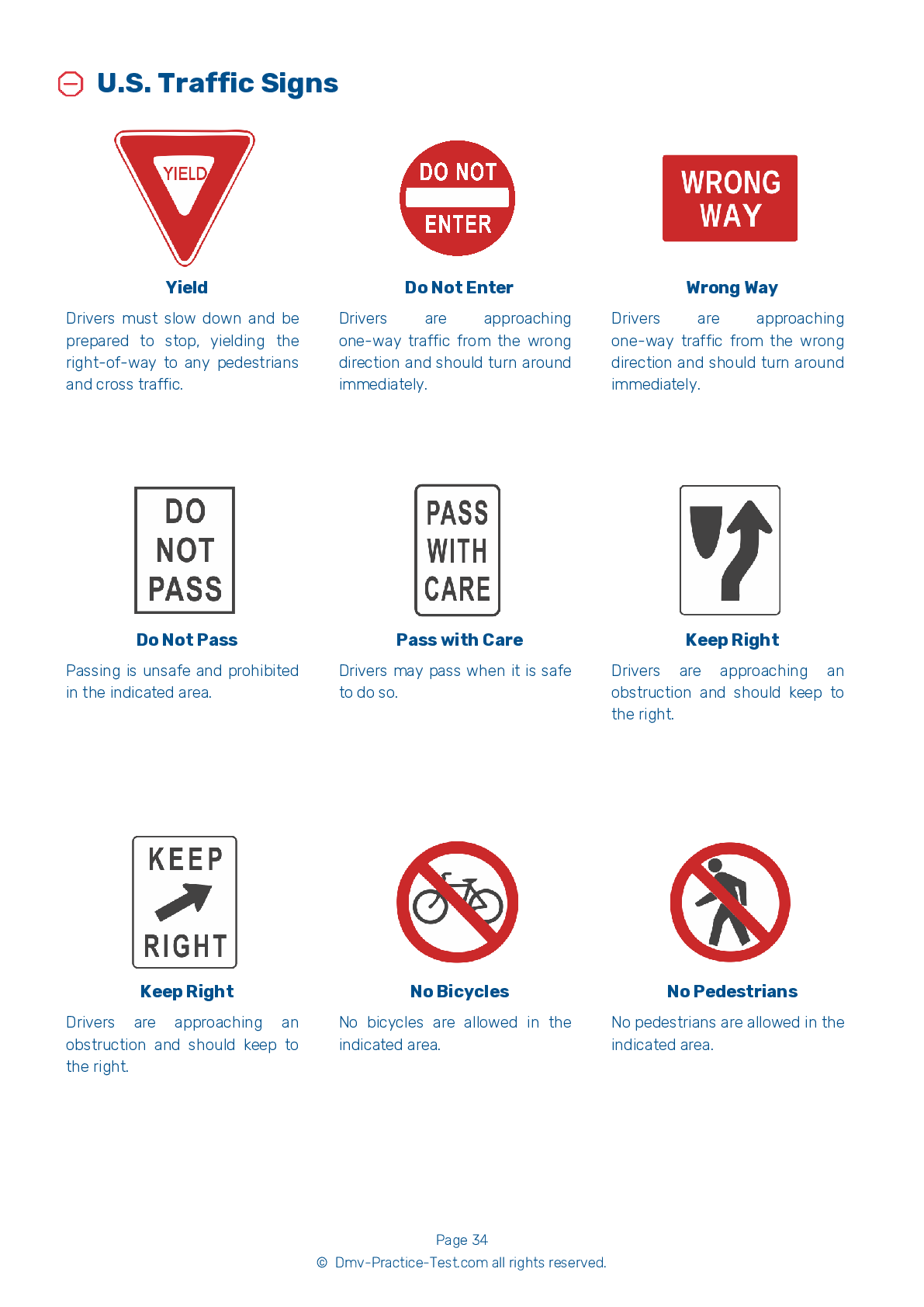FREE Pennsylvania DMV Practice Test #12 Page 2 of 3
The Pennsylvania DMV practise examinations have been updated for January 2026. It includes questions based on the Pennsylvania Driver Handbook's most essential traffic signals and regulations for 2026. Use actual questions that are very similar (often identical!) to the DMV driving permit test and driver's licence exam to study for the DMV driving permit test and driver's licence exam.
On the practise exam, each question gets a tip and explanation to help you remember the concepts. The written component of the official Pennsylvania DMV test will feature questions about traffic rules, traffic signs, and driving statutes, as well as knowledge from the Driver Handbook.
To obtain a passing grade, you must correctly answer 15 of the 18 questions. Use the practise exam provided by the Pennsylvania Department of Motor Vehicles to help you prepare for your instruction permit or driver's licence.
The DMV exam is available in several languages.
Using any kind of testing assistance will result in an automatic fail, and the DMV may take additional action against your driver's licence, so stay away from it.
7 . At an intersection with a stop sign, you should stop and:
When stopped at an intersection, you should first look to your left, as vehicles coming from the left are closer to you than vehicles coming from the right. Look to your right, then look to your left again, in case there are any vehicles coming from that direction that you did not see at first glance.
8 . Which of the following is a safe way to drive through a curve?
You should slow down as you enter a curve and increase your speed gradually as you exit. Increasing your speed as you enter a curve will make it more difficult to control your vehicle.
9 . The “Four-second rule” refers to how one should:
On dry pavement, you should generally allow a cushion of at least four seconds between you and the vehicle ahead.
10 . Which of the following is true about the speed at which you travel?
To determine a safe driving speed, you must take into account many factors, including road conditions, visibility, and the flow of other traffic. When conditions are less than perfect, safety may require you to drive more slowly than the posted speed limit.
11 . If you are driving on a one-way street and an emergency vehicle using its flashing lights approaches your vehicle, you must:
If an emergency vehicle using its lights or siren approaches while you are driving on a one-way street, you must drive toward the nearest roadside and stop.
12 . When you see or hear an emergency vehicle coming, you should:
When driving on a two-lane roadway or undivided highway, you must yield to an emergency vehicle using its lights and/or siren, regardless of the direction from which it is approaching. Immediately drive as near as possible to the right side of the road and stop, taking care not to stop within an intersection.
Need Car Insurance? No problem!
Compare the best rates in Pennsylvania and find a personalized policy that meets your needs.
1. Are You Currently insured ?
2. Married ?
3. Do you own your Home?
4. Do you have more than 1 car ?
5. Have you or a Family Member Honorably Served in U.S. Military ?
6. Your Name
7. Age
8. Zip code
IMPORTANT REMINDER:Auto Insurance is Mandatory to drive in Pennsylvania. Get covered before you hit the road to avoid any fines.
Ranked by best match



